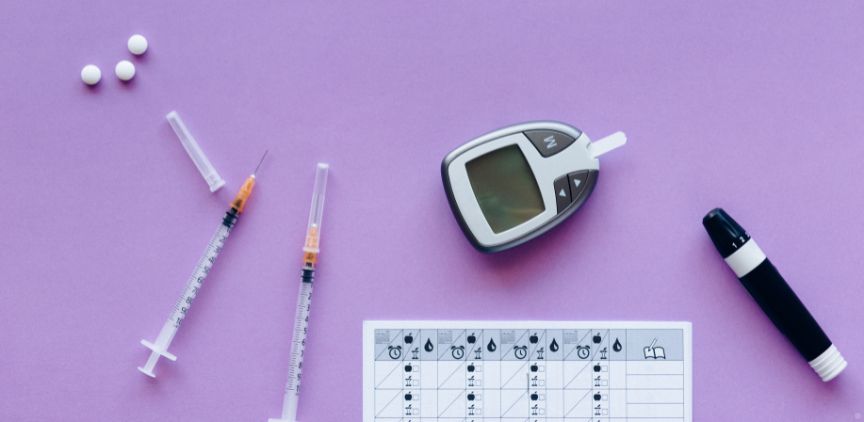Treatment for Diabetics
Proper management and treatment for diabetics is crucial to prevent complications and maintain a high quality of life. In this article, review various treatment options for diabetes, including Jardiance, and effective strategies to manage diabetes symptoms through lifestyle changes.
Treatment Options for Diabetes
Managing diabetes effectively involves a combination of medication, insulin therapy and lifestyle modifications. Here are some primary treatment options.
1. Jardiance (Empagliflozin)
Jardiance is an oral medication in the class of sodium-glucose co-transporter-2 (SGLT2) inhibitors. It works by preventing the kidneys from reabsorbing glucose back into the blood, thereby promoting its excretion through urine. Jardiance not only helps lower blood sugar levels, but also has benefits in reducing the risk of cardiovascular events in patients with type 2 diabetes.
2. Insulin Therapy
Insulin therapy is essential for individuals with type 1 diabetes and may be required for some with type 2 diabetes when other treatments are insufficient. Insulin can be administered through injections or an insulin pump. Different types of insulin (rapid-acting, short-acting, intermediate-acting and long-acting) are used based on the patient’s needs.
3. Oral Medications
Several classes of oral medications are available for managing type 2 diabetes, each working differently to control blood sugar levels:
- Metformin. The first-line medication that decreases glucose production in the liver and improves insulin sensitivity.
- Sulfonylureas. Stimulate the pancreas to produce more insulin.
- DPP-4 Inhibitors. Help increase insulin release and decrease glucose production.
- GLP-1 Receptor Agonists. Enhance insulin secretion, suppress glucagon release and slow gastric emptying.
Managing Diabetes Symptoms: Lifestyle Strategies
Beyond medication, lifestyle modifications play a pivotal role in managing diabetes and preventing complications. Here are some key strategies.
Diet
A balanced diet helps control blood sugar levels and maintain a healthy weight. Incorporating vegetables, fruits, whole grains, lean proteins and healthy fats into appropriate portion sizes can help regulate calorie intake. In addition, monitoring carbohydrate consumption and choosing complex carbohydrates over simple sugars is key to preventing blood sugar spikes.
Exercise
Regular physical activity enhances insulin sensitivity and helps maintain a healthy weight. Aerobic exercises, such as walking, cycling or swimming, can help with weight management. Strength training also helps to engage the muscles and improve glucose uptake.
Stop Smoking
Smoking exacerbates diabetes complications, including heart disease, kidney damage and neuropathy. Therefore it is extremely important to stop smoking in order to manage symptoms and prevent complications.
Limit Stress
Chronic stress can impact blood sugar levels and overall health. Stress management techniques, such as meditation, yoga, deep breathing exercises and hobbies, and getting an adequate amount of sleep support stress reduction and good metabolic health.
Monitor Blood Glucose Levels
Regular monitoring helps in making informed decisions about diet, exercise and medication. The use of glucometers allows for frequent testing of blood sugar levels, and Continuous Glucose Monitoring (CGM) provides real-time data and alerts for significant changes.
Limit Alcohol
Excessive alcohol intake can interfere with blood sugar levels and diabetes medications. Limit alcohol consumption to moderate levels, generally up to one drink per day for women and two for men.
Check Blood Pressure
Hypertension often accompanies diabetes and increases the risk of cardiovascular complications. Keep track of blood pressure readings and consult a doctor if these values are consistently high.
Maintain a Healthy Weight
Achieving and maintaining a healthy weight is essential for managing Type 2 diabetes and improving insulin sensitivity. A balanced diet and regular exercise are the foundation for weight management. It’s also helpful to set realistic goals, track progress and seek support when needed.
Monitor Cholesterol
High cholesterol levels increase the risk of cardiovascular diseases in individuals with diabetes. Your doctor may perform regular lipid panels to monitor levels of LDL, HDL and triglycerides. Medications, such as statins, might be prescribed if cholesterol levels cannot be maintained with dietary adjustments.
Final Notes
Managing diabetes requires a comprehensive approach that combines medical treatments with proactive lifestyle changes. By understanding the condition, recognizing symptoms early, adhering to prescribed treatments and adopting healthy habits, individuals with diabetes can effectively control their blood sugar levels and reduce the risk of complications.
Keep reading to learn about how to treat sleep disorders.

